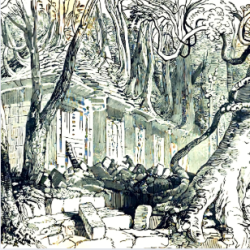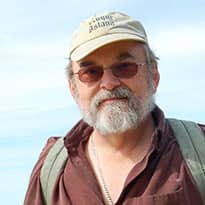A final objection might then be, "Haven't you simply reduced religion to subjectivity?" Again, I answer, "No." Subjectivity as we normally think of it is purely personal. I like chocolate ice cream more than I like strawberry, and you have the opposite preferences. That's subjectivity. It refers only to my personal preferences and dislikes.
When we honor the world there is a subjective element to be sure. But we make an additional claim: We are honoring a context bigger than we are, a context that is real.
Let me give another example of what I am trying to get at. Imagine a person beloved to you going missing. A policed description is provided so people can hopefully report having seen them. There is a photo and a description of their physical characteristics. Perhaps even DNA data is provided. When you see the description you realize it could not be done better, and yet what is most fundamental about that person is not there.
What is not there is not simply your subjective sense. First, their friends and loved ones would likely all agree here. There is "intersubjective verifiability" to use the technical term. There is something outside our minds that our minds share in perceiving but that can only be described experientially, not impersonally. The person's intrinsic value as a being is a part of that realm of experience. A person blind to a person's inner self, and the value of that self, is called a sociopath, and is considered not simply having different subjective preferences, but rather as deeply flawed as a human being.
The same is true for our world. The failure to see its intrinsic value is more akin to the sociopath's inability to see value in others than it is to my preference for chocolate over strawberry ice cream. Seeing that value, we celebrate and honor it.
We have a lot to learn about the phenomena we lump together as "subjective" but hopefully this example indicates that this last criticism does not have anything like the force those making it might think. Perhaps one of the greatest gifts we Pagans can help our society to learn is to give up its "worldpathic" attitude towards our home and realize that attitude is as flawed and as mistaken as a sociopath's failure to appreciate humanness.





